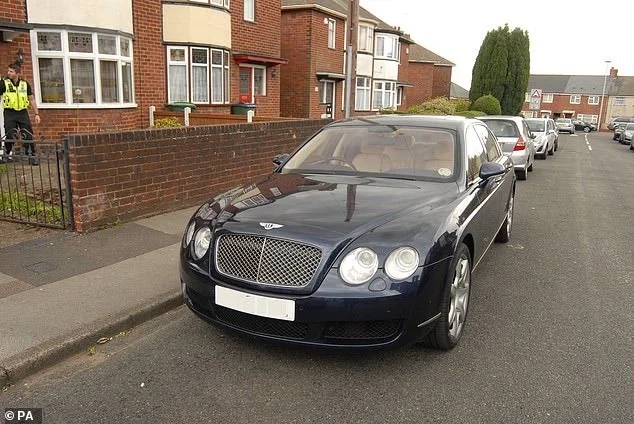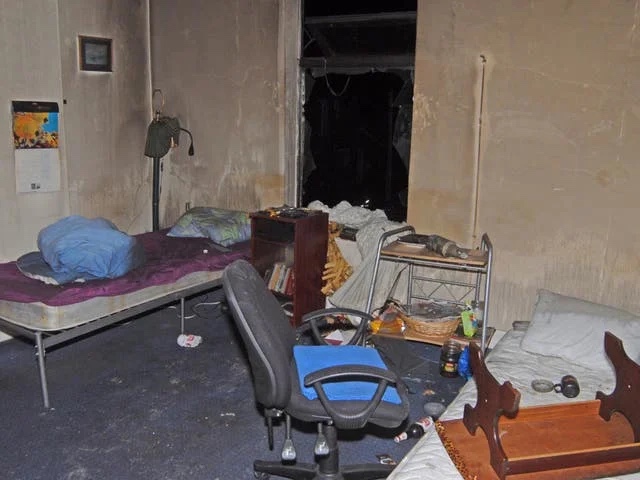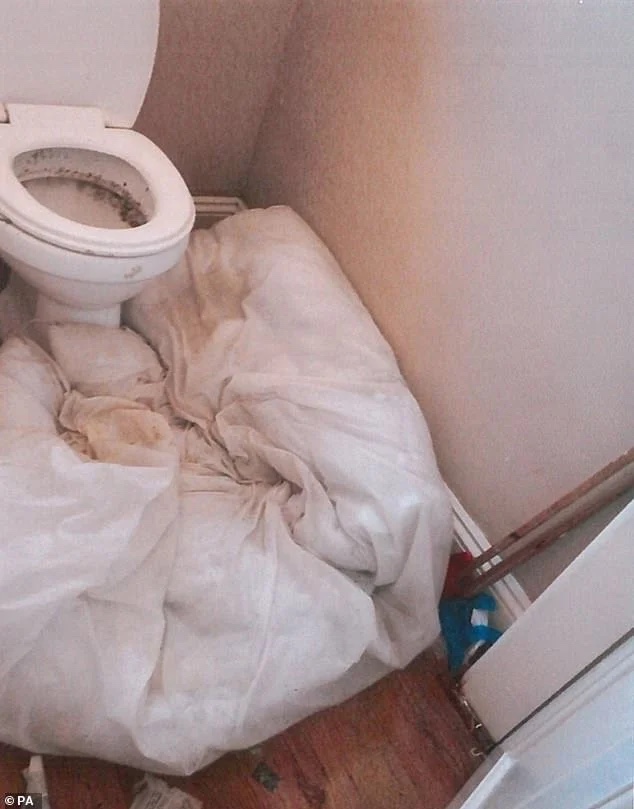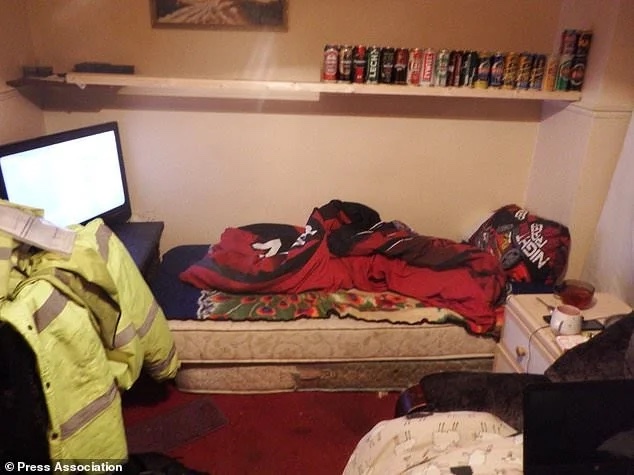Promises and lies
3 men who ran the largest human trafficking ring ever in the UK have been convicted of forcing hundreds of desperate people to live and work in appalling conditions.
David Handy, 54 , Mateus Natkowski, 29, and Lukasz Wywrinski, 38, enticed hundreds of people from Poland to the West Midlands with the promise of better lives.
Modern slavery
In reality the gang were cramming up to 11 people in two-bed houses and forced them to work – then took their off their wages from them.
Guilty
They were convicted in the third trial in what is believed to be Europe’s largest ever modern slavery prosecution.
A three-year police investigation, started in 2015, uncovered a well-organised criminal gang led by the Brzezinski family.
The first of two trials in 2019 led to five conspirators being jailed for a combined total of 35 years.
A court heard how criminal bosses raked in £2m while those they exploited lived in squalor.
Victims were reduced to recycling used cigarette butts off the street, and going to soup kitchens and food banks to get enough to eat.

Paid with a chicken
Some were paid as little as 50p for a day’s labour – and in one case a worker was given coffee and a chicken as payment for redecorating a house.
Another man had to wash in a canal because he had no other access to water, while one house’s leaky toilet had to be plugged with an old duvet.
Meanwhile the gang’s bosses lived the high life wearing designer clothes, and driving luxury cars, including a Bentley

Misery and poverty
Judge Mary Stacey said the conspiracy, which ran from June 2012 until October 2017, was the “most ambitious, extensive and prolific” modern day slavery network ever uncovered.
She said the defendants had subjected victims to a “demi-life of misery and poverty”, robbing them of their dignity and humanity “without care or regard for the rights of the individuals affected”.
Shocking images shows the revolting conditions of their cramped accommodation where a duvet is stuffed beside a filthy, blocked toilet.
Trial
Jurors heard the accounts of more than 90 victims, but it is believed at least 350 more had been through the gang’s hands.
One Polish victim was recruited in Poland with the promise of £300-£450 a week and accommodation in the UK.
He was met by Wyrinski and Natkowski in the UK in February 2015 and brought back to a two-bedroom house with 11 people living there with no beds, no heating and no hot water or cooking facilities.

He was not allowed out on his own and was followed everywhere he went.
Three weeks later he was taken to an employment agency and to open bank accounts, but he never received any cards.
Great escape
During those three weeks he worked 12-13 hours a day, and received £10 in total.
He described being assaulted by Wyrwinski and being watched and monitored by Natkowski.
Natkowski and Wywrinski acted as enforcers to intimidate the victims from escaping.

Taking advantage
Natkowski often met victims trafficked to the UK and brought them back to a rented two- or three-bedroom house, with limited hot water and heating.
Wywrinski lived in the houses with the victims and would verbally and physically abuse them so they would not dare escape.
Handy appeared a legitimate employer who provided work for those being exploited by the slavery gang.
His communication with gang members showed he knew exactly what was going on.
He discussed how various workers would be managed and the arrangements over the levels of wages and where wages would be paid.
Spokesperson
A CPS spokesperson said: “His willingness to turn a blind eye to the misery caused to the people being exploited was underlined by the discovery of few proper records and accounts from witnesses that they had little
understanding of the terms of their employment.
“His driving motive, namely greed, was emphasised by his attempts to hide the profits he was making from HMRC.
“Without his active cooperation, the slavery gang would have found it much harder to find work for those they were exploiting and to siphon off the money earned through slave labour.
The CPS proved that Handy chose to disregard the suffering of others in the pursuit of personal financial gain.
“Handy’s conviction shows that he not only knowingly profited from the mistreatment of others but maximised his gains by hiding his money from HMRC.
Conspiracy
The trio were caught when the CPS uncovered text messages exchanges between them.
The gang’s network collapsed after two victims fled their captors in 2015 and spoke to Hope for Justice.
The charity said 51 of the victims eventually made contact through its painstaking outreach efforts at two drop-in centres.
West Midlands Police then launched an investigation in February 2015.
Opening the second of two trials, Caroline Haughey, prosecuting, said:
Prosecutor
“When you are deprived of your freedoms and exploited for your weakness, that is criminal – and it is of such exploitation and degradation that this case concerns – where human beings have become commodities.
At the end of the second case last month, a jury at Birmingham Crown Court convicted two men, 52-year-old Ignacy Brzezinski, of West Bromwich, and Wojciech Nowakowski, 41, of Birmingham, of modern slavery offences.
Jailed
A third, Jan Sadowski, 26, of West Bromwich, admitted his part on the first day of trial.
At a previous trial ending in February, leading conspirator Marek Chowanic, along with Ignacy’s cousin, Marek Brzezinski, recruitment consultant Julianna Chodakiewicz, Natalia Zmuda and Justyna Parczewska, the group’s matriarch, were all convicted of their roles.
Multiple trials
At the first trial sentencing, Judge Mary Stacey said their ‘degradation’ of fellow human beings had been ‘totally unacceptable’, jailing the five for between 11 and four-and-a-half years.
She said the defendants had subjected victims to a ‘demi-life of misery and poverty’, robbing them of their dignity and humanity ‘without care or regard for the rights of the individuals affected’.

Victims, aged 17 to over 60, were housed across at least nine different addresses in West Bromwich, Walsall, Sandwell and Smethwick, crammed up to four to a room, fed out-of-date food, and forced to scavenge for mattresses to sleep on.
Some had no working toilets, heating or furniture.
If any complained, gang enforcers would humiliate, threaten or beat them up, while ‘house spies’ previously trafficked individuals turned trusted informers kept an eye on the workers.

The number of potential modern slavery victims identified in the UK has risen by 52% in a year to a record high, official figures have revealed.
In 2019, 10,627 potential victims of modern slavery were referred to the National Referral Mechanism (NRM), the official system through which victims of modern slavery are identified and provided with support. This was up from 6,986 in 2018.
Of these, officials decided there were “reasonable grounds” to believe 8,429 were victims of modern slavery, meaning they were provided with at least 45 days of specialist support including in some cases accommodation. Just over 1,000 of the referrals were determined not to be cases of modern slavery.
UK police record 51% rise in modern slavery offences in a year
Read more
But all 8,429 who received a “reasonable grounds” decision are awaiting a “conclusive grounds” decision, the next stage in the process. This means around 80% of 2019 referrals are awaiting a conclusive decision, compared to just 38% of referrals for 2018 as of 10 February 2020.
Modern slavery includes human trafficking, slavery, servitude or forced labour.
A Home Office spokesperson said: “Growing awareness of modern slavery and better training for first responders has improved the way this abuse is tackled and led to more referrals of potential victims.”
The Home Office data shows that just over half of referrals were for individuals who claimed they had been exploited as adults.
Explotation
Of the potential victims referred in 2019, two-thirds claimed that the exploitation occurred in the UK only.
The most common type of exploitation in 2019 for both adults and minors was labour exploitation.
However, in the final quarter, officials started splitting a new category of “criminal exploitation” from labour exploitation.
The change revealed the majority of potential child victims of modern slavery were for criminal exploitation and this was being driven by an increase in the identification of county lines cases, the Home Office said. County lines is used to describe drug gangs in large cities expanding their reach to small towns.
Law enforcement in the UK is utilising modern slavery legislation against county lines offenders; alongside charges for drugs offenses, gang members are increasingly facing human trafficking charges.
The three most common nationalities of potential victims referred to the NRM were UK, Albanian and Vietnamese.
Modern Slavery act
The UK last week became the first country to publish a government modern slavery statement, which sets out how the UK government is tackling the crime in its own supply chains.
Thousands of businesses are currently required to publish annual modern slavery statements under the Modern https://www.theguardian.com/world/slavery”Slavery Act.
The UK government published its own statement, which assessed the risk of modern slavery across around £50bn of its annual spending. Individual ministerial departments will publish their modern slavery statements from 2020-21.

